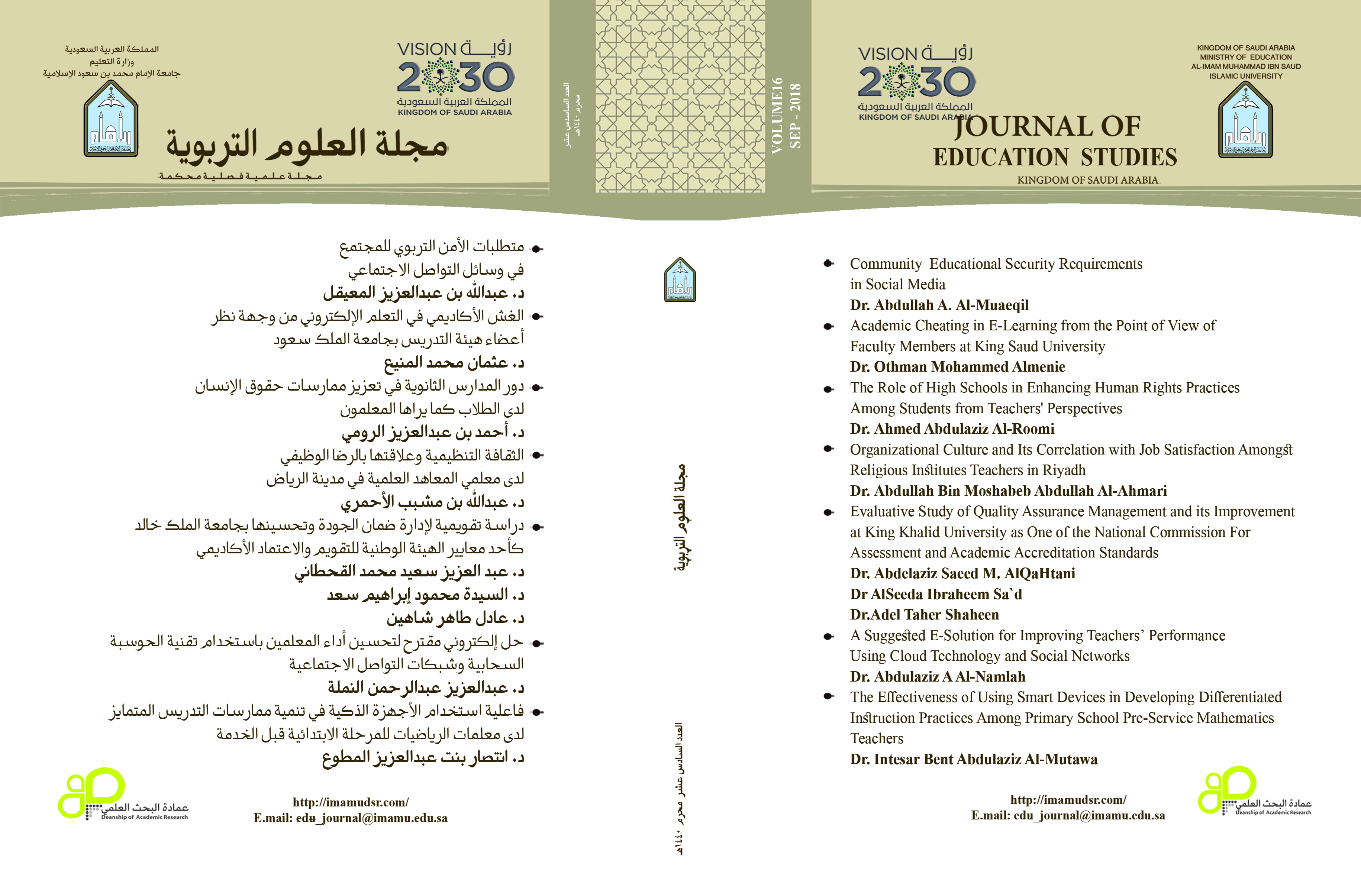The Effectiveness of Using Smart Devices in Developing Differentiated Instruction Practices Among Primary School Pre-Service Mathematics Teachers
Keywords:
Differentiated Instruction, teaching practices, smart devices, the integration of technology in teaching, primary school pre-service mathematics teachers, mathematics teachingAbstract
The current research aims to identify the effectiveness of using smart devices in the development of instructional practices at primary schools by pre-service mathematics teachers. In order to achieve the objective of the study, the researcher uses an experimental design approach, specifically the quasi-experimental approach utilizing experimental and control groups. The researcher prepared a notecard for recording differentiated instructional practices. The reliability and stability of research instruments were verified. The research instruments were implemented with (43) pre-service teachers enrolled in the program for the elementary school sixth form lower junior class teachers at Princess Nora bint Abdulrahman University, during the first semester of the academic year (1434-1435H).
The research findings indicate that the effectiveness of using smart devices is seen in the development of teaching practices in the following differentiated aspects: differentiated classroom environment, teacher’s behaviors, using diverse instruments and sources of learning, different mathematics strategies.
In light of the research findings, the researcher presents a number of recommendations including: taking differences between students into account when preparing the academic plans and curricula; developing curricula in a way that ensures its easy application for the differentiated teaching practices to achieve the best results for students; considering including differential teaching practices using smart devices in higher education. All this will ensure the preparation of positive learners benefiting from and able to apply science and knowledge and not be a mere carrier of them.




